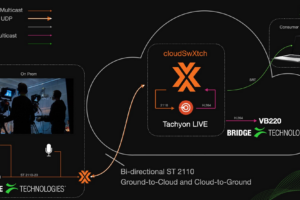Mandiant has unveiled the findings of its “Global Perspectives on Threat Intelligence” report, which provides new insight into how organizations navigate the increasingly complex threat landscape. The report is based on a global survey of 1,350 cyber security decision makers across 13 countries and 18 sectors – including respondents from the Middle East.
Operationalizing intelligence identified as a challenge.
Despite the widespread belief among Middle East respondents that understanding the cyber threat actors who could be targeting an organization is important (94%), 83% stated that their organizations make most or all of their cyber security decisions without insights into the threat actor that is targeting them.
While the report found that a majority of respondents (91%) in the region were satisfied with the quality of threat intelligence their organization is using, respondents declared that effectively applying that intelligence throughout the security organization to be one of their greatest challenges (49%). Other findings on the collection of information regarding different threat groups and their tactics, techniques, and procedures (TTPs) include:
● Just 47% said their organization had a comprehensive level of understanding about different threat groups and their associated TTPs
● Nearly all respondents (98%) of those surveyed believe they need to be faster at implementing changes based on available threat intelligence.
Underestimating the threat
According to the report, just over two-thirds (68%) of security decision makers believe senior leadership teams still underestimate the cyber threat posed to their organizations, with respondents from the Middle East most likely to lack faith in their senior leadership’s knowledge of the cyber threat (68%).
Despite these concerns, however, security decision makers remain optimistic regarding the effectiveness of their cyber defenses. When asked about confidence in whether their organization is fully prepared to defend itself against different cyber security events, respondents felt most confident in tackling financially motivated threats, such as ransomware, with the majority (96%) at least somewhat confident in defending against this, followed by those conducted by a hacktivist actor (95%) and nation-state actor (91%).
Further, just over half of respondents (57%) felt they could prove to their senior leadership team to a great extent that their organization has a highly effective cyber security program.
Additional findings reported across the Middle East:
● When asked which countries their organization would be unable to fully defend itself against, almost half of respondents (49%) placed North Korea in their top three, followed by Russia (48%), China (43%) and Iran (43%).
● 44% of respondents reported that their organization had suffered a significant cyber-attack in the past 12 months, defined as one that had caused demonstrable harm.
● Cyber security is only discussed on average once every three to five weeks with various departments within organizations, including the board of executives (three), members of the C-suite (four) and other senior stakeholders (five).
● Only 43% of security teams share threat intelligence with a wider group of employees for risk awareness.
● 64% of IT security employees feel overwhelmed by the amount of data and alerts they have to deal with on a regular basis.
● Security teams believe possessing greater knowledge of cyber threat actors will allow them to:
○ Shift from a reactive to a proactive cyber security stance (61%)
○ Take action to better protect the organization (57%)
○ Better prepare for future attacks (57%)
Quotes
Sandra Joyce, Vice President, Mandiant Intelligence at Google Cloud comments: “A conventional, check-the-box mindset isn’t enough to defend against today’s well-resourced and dynamic adversaries. Security teams are outwardly confident, but often struggle to keep pace with the rapidly changing threat landscape. They crave actionable information that can be applied throughout their organization.”
Joyce continued, “As our ‘Global Perspectives on Threat Intelligence’ report demonstrates, security teams are concerned that senior leaders don’t fully grasp the nature of the threat. This means that critical cyber security decisions are being made without insights into the adversary and their tactics.”
Jamil Abu Aqel, Mandiant Head of Systems Engineering, Middle East at Google Cloud: “In today’s interconnected world, cyber security threats in the Middle East are a growing concern. As attackers become more sophisticated and innovative in their methods, it is crucial for businesses to take proactive measures to protect their valuable assets and customer data.”
“This new research reveals that security teams are worried that top management lacks a complete understanding of the threat, resulting in crucial cybersecurity decisions being made without sufficient adversary insight. To mitigate these risks, organizations in the region must take a proactive approach to cyber security by seeking concrete threat intelligence on potential attackers and their methods relevant to their specific industry, leverage that intelligence to protect against potential threats, and effectively communicate on the cyber threat to key stakeholders.”








